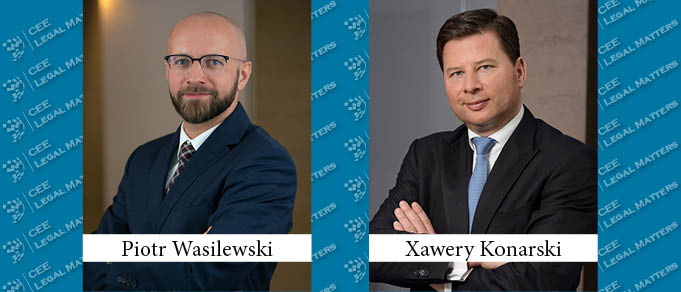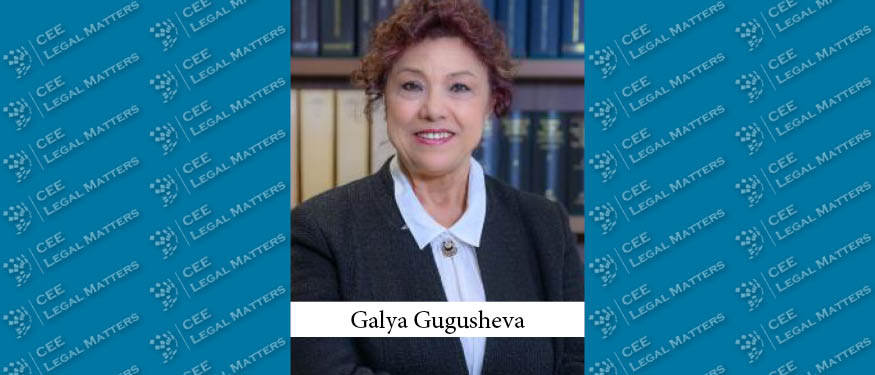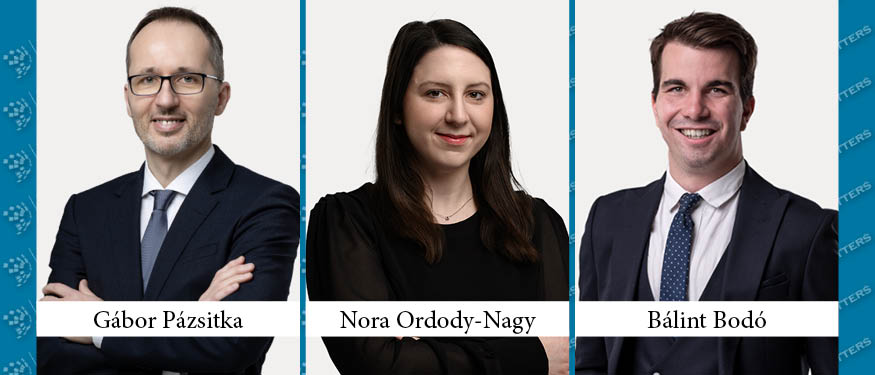The Polish law firm of Traple Konarski Podrecki is in a position of running and maintaining a network of 15 firms, covering 19 jurisdictions, all working in unison for one of the biggest tech companies the world has ever seen – Google. To gain a deeper understanding of how this network of law firms functions and operates, we reached out to TKP Senior Partner Xawery Konarski and Partner Piotr Wasilewski.
TKP at a Glance
TKP is a Polish independent law firm with Krakow roots and a history spanning 25 years. “Most of our partners have academic backgrounds, so we are not just practitioners but also scholars, with many still working at top Polish universities,” Konarski says.
First starting as a boutique IP, TMT, competition, and data protection law firm, TKP grew in all directions and, nowadays, encompasses “almost 100 members, including administrative staff, divided into ten practices, operating in Warsaw and Krakow,” Konarski says proudly.
Google, as Konarski puts it, had a difficult time managing its regulatory affairs across 19 jurisdictions in CEE, with the principal problem of developing a standardized approach. “For example, if they were to use Google Street View in Romania, Hungary, or Poland – what would the requirements be, how would they structure their operations, etc. – none of these questions was, seemingly, getting comparable answers, with one country having a 20-page long legal reasoning produced by a law firm, and the other having but a few sentences,” he stresses. “These were the problems they were facing, and they contacted us to help them with standardizing the work of outside counsels and overall compliance,” Konarski says. “Our cooperation with Google started seven years ago – with them approaching us,” he continues.
“To be able to manage this work,” Wasilewski chimes in, “we had to unearth high-profile expert law firms in CEE, those that would be able to work with us and be accepted by Google.” To that end, TKP filtered the CEE countries by three criteria – EU member states, members of the Council of Europe, and others – and began their search.
“Choosing the correct law firm was not an easy task, and we had to do a lot of traveling, meeting each potential candidate firm and getting to know both it and its experts – on all levels,” Wasilewski continues. “We built robust professional relations with these firms over all these years and haven’t yet had a case of having to exclude anybody from the network.” Moreover, he says that “even the department heads in the firms are still the same!”
Googling the Network
The network itself, Konarski says, numbers 15 law firms, some covering more than one jurisdiction. “In total, there are up to 1,000 professionals working within the network each year,” he says. “and 83 lawyers accompanied by administrative staff are currently active on the project.”
Constructing the network itself, TKP relied on Google’s inputs. “Google’s regional HQ in Poland is quite close to us, so we had the chance to cooperate closely with them from day one,” Konarski says. “They had some ideas for who we could partner up with – which did help us choose our partners for the network.”
“It is a pretty diffuse landscape,” Wasilewski says. “Some firms are quite large and cover many markets, while others are almost boutique sized. As a result, our cooperation with each had to be well thought out.” As Wasilewski puts it, having hundreds of pages of agreements with the firms would be “untenable,” so TKP cooperates with them all based on letters of understanding.
“There is a huge amount of trust between all parties involved, built on the experience of each of the partners, as well as our relationship with them,” Wasilewski says, adding that all the law firms within the network tend to meet up as frequently as possible and organize boot camps to transfer knowledge and experience more efficiently.
Running the Search
The way that the network itself functions is “like a legal proxy, in a way,” Wasilewski says. “We receive a task from Google, and the first step we take is preparing it so that it could be sent to other law firms within the network. We prepare all of the accompanying materials and documentation and send it to our hub members for further processing,” he explains. Afterward, relevant deadlines are defined – an internal one for the hub and an external one for Google.
“A few years ago, we moved completely to working via Google Workspace, completely cloud-based, which sped up our work greatly,” Wasilewski says. “After they receive their tasks, the law firms get to work, with us all the while being able to monitor their progress. This gives us complete insight into each task, its history, projected deadlines, and ultimate completion.”
When the tasks are completed, TKP goes over them and prepares a unified harmonized report for Google. “At that point, we stand by for any potential follow-ups and further clarifications, but our principal role is in creating a unified approach – be it for commercial and regulatory matters or even litigation,” he says.
Indeed, Konarski adds that “Google faces a lot of claims” and that, with the help of TKP, it can “implement consistent approaches to each of these challenges, which is very important both for internal corporate policies and outside regulatory compliance requirements.” Often, legal reasoning used in one jurisdiction can help with an ongoing matter in another, and intra-network cooperation between law firms is what breeds synergy.
TKP processes approximately 30 projects each month (or even more). “Currently, we have 31 pending litigation cases,” Wasilewski shares. “From the start of 2022, we saw 18 new cases, whereas 16 were closed in the entire hub. In 2021, we had 15 cases that spanned more than ten jurisdictions and 13 that covered more than 15 jurisdictions.” In total, TKP has 76 pending projects since the beginning of the year, some of which “are as simple as preparing a translation for a policy amendment, but some are quite challenging.”
Harmonizing Search Results
Getting this massive amount of work to harmonize is no small feat. The way the process gets standardized is multifold. “Firstly, there are the boot camps we set up,” Konarski says. “We usually discuss legal problems and share experiences and best practices.”
“Together with our counterparts in Google, we take to discussing all of the process issues, like not delivering a task in time, handling invoicing, and the like,” Wasilewski adds. “It is an open discussion process with Google, which includes not only us but our entire network.”
An additional way of unifying the process is working in shared documents. “By using cloud-based resources, all of our network members can have real-time insights into the work of their colleagues,” Wasilewski says. “This allows them to cooperate more frequently and help each other out – which saves time and effort for all.”
A Success Story that Keeps Growing
With the TKP-run CEE legal hub operating on Google’s behalf going strong for seven years now, it is an objective assessment that it is a monumental achievement. “Hubs such as this are the future of how multinational companies will organize their legal services,” Konarski says. “It enables such a strong transfer of knowledge and experience between all its members that it only gets stronger each day.”
And while this “synergy exists in its raw form, it still requires a strong coordinator,” he continues. “I believe that using a shared platform for work, creating standardized approaches to problem-solving, will define how legal work is done.”
Indeed, the hub’s operation was so successful that Wasilewski reports that Google wanted to apply the same approach to its African markets. “The African hub covers almost twice the size of what we do here in CEE. They had a chance to learn from our previous work and could hit the ground running, which is an amazing achievement,” he says, adding that the hub in Africa has been operating for “almost four years now.”
Ultimately, it’s about the bottom line, and the hub approach “saves a lot of time and money for clients of such size,” Konarski concludes. “This is the proper way of organizing legal work in a given region.”
This Article was originally published in Issue 9.6 of the CEE Legal Matters Magazine. If you would like to receive a hard copy of the magazine, you can subscribe here.















